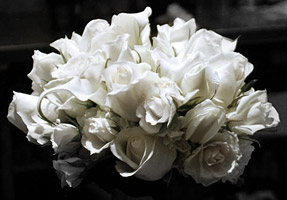I figured everyone ought to know some of the tips I’ve used when purchasing fragrances on eBay that have worked for me so far. Like with all else you buy online, even if you abide by all of these tips, you cannot 100% guarantee that you will never encounter or accidentally purchase a counterfeit fragrance. But you will at least reduce your risk of being scammed.
Without further ado . . .
1. Those photographs sure look fishy.
Your first and best defense against counterfeits is to know what you’re going to buy and know it really well. Always do research on an item before you drop the money for it especially if you’re looking at dropping a large amount on an item. If it’s in and around $100, you can spend some time going to a store or looking up the bottle and box online so you know what you’re supposed to be getting. Scrutinize the provided photographs and consider the following:
- Does the seller use stock photos? I would never purchase a fragrance from a seller who only used stock photographs. You can’t know for sure what exactly the product they intend to send you will look like. So it’s either their photographs that they took themselves or it’s no sale.
- Are the photos small and blurry? Not everyone can afford a nice camera, but as a seller, it is their responsibility to accurately describe and portray the item they intend to sell. That means, clean, clear, large photographs from varying angles. If someone’s photograph of an item is the size of a thumbnail or blurry, I ask them to take more or take better pictures.
- Is the seller willing to comply with your request for more photographs? Should you feel the need to see more images of the product, don’t be shy or be afraid to ask for more. Remember to keep your request within reason (give me fifty more photos and I want them by tomorrow is unreasonable but asking for five more photos of different angles should be okay for most sellers). A serious seller will have no problem providing you with more original pictures of their product.
- Do the photos even belong the seller? This one is hard to gauge, which is why you shouldn’t be too afraid to ask for more photographs. Sometimes unscrupulous sellers will steal photographs from other eBay auctions or somewhere online to use in their auction. If you’re suspicious, ask for more pictures! Or even go so far as to request the seller photograph the item with a scrap of paper with their eBay username or a word that you’ve chosen written on it.
2. Beware of brand new, sealed in box.
While not always faked, it is much harder for a potential buyer to tell if a perfume they’re going to buy online is fake or real if it’s sealed in a box. This is because counterfeiting a cardboard box and getting the details close to right is a whole lot easier than getting all the details right on the bottle inside. Also, there’s a possibility the seller took out the actual bottle from the actual box and put in a cheap knock-off instead and resealed it. Then you won’t even know until you get the bottle out of the box.
- Are all the design elements on the box in the right place? Is everything spelled and spaced correctly?
- Is the cellophane that encases the box neat? Is it clean? Does it look new or does it look wrinkled? If it’s wrinkled, there’s a possibility the seller may be using an actual box but has put a different, knock-off fragrance inside and tried to reseal it.
- Again, try to get the seller to take photographs of the box. It might be weird request, but ask them to photograph the ingredients list, the logo, and the lot code on the box. With all of these photographed, you can look for typos and spelling errors, or out of place design elements. If the seller refuses to offer more photographs (remember, they don’t lose anything but a little bit of time if they do this for you) then be wary of the authenticity of their product.
3. People lie.
You have to come to accept this sad fact that some people will lie and are very good at lying. It gets even easier when they’re online where others can’t see them or hear them. So when you’re buying anything online, always keep this in mind. People lie. They will lie to get your money and they will do it very well. You should not put your trust into someone until they prove they can be trusted.
- Check their feedback. Always, always, always, check an eBay seller’s feedback before you even consider buying anything from them. Look at the neutral feedback as well as the bad feedback and see what others have said about them. You can use Toolhaus.org to quickly check a seller’s negative and neutral feedback.
- If the seller has zero feedback, don’t buy. Sellers with zero feedback are not necessarily counterfeiters but you just don’t know and perfumes are expensive items that cost too much to throw on a whim for a seller with zero feedback.
- Just because they say it’s 100% authentic, doesn’t mean it is. I don’t even know why sellers bother to put 100% authentic into their item titles or descriptions anymore as any savvy buyer will just gloss over those words. In fact, every time I see 100% authentic, I get suspicious.
4. The feedback can say it all.
This ties in with the previous point about checking the seller’s feedback. Read through all of the neutral and negative responses. If you see someone say something about the seller sending them a fake or a knock-off then click away. Don’t trust a seller just because they’re a top seller, or a power seller, or most everyone else has had an excellent experience with them. If there’s one thing I’ve noticed with perfumes it’s this: Most people are not perfumistas and cannot tell a real from a fake. This isn’t a sleight against any of you, it is just a fact that if you aren’t around this stuff enough then it’s very easy to overlook a very good counterfeit.
5. There is no shame in buying used bottles or testers.
You are safer, by and large, if you purchase used bottles of perfumes or testers. There’s usually nothing wrong with these items and they are very often authentic. Think of it this way, why would a counterfeiter go out of their way to make fake items and then make them look used or look like testers? These used or tester items don’t sell for as much as brand new items so it is a waste of time and money for the counterfeiter. Therefore, this makes you safer to purchase used or tester bottles. Please note that I did not say this makes you safe–just safer.
6. Pay with Paypal, even better with Paypal attached to credit card.
Always try to pay for items through Paypal so you can contest the payment and hopefully get your money back if the seller ripped you off. If you got sent a fake, start making noise immediately. Paypal gives the buyer a certain amount of days (within 45 days) after the transaction has taken place in order to open a dispute about the purchase. Once a dispute is opened the buyer has 20 days to escalate their dispute to a claim if nothing has been done to remedy the issue or if the dispute has not been settled. Getting a counterfeit item is a perfectly legitimate reason to contest a purchase. If Paypal refuses to do anything about your issue, call up your credit card company and have them do a chargeback. Remember:
- With Paypal, you the buyer, have 45 days from the time of the purchase (not the delivery of the item!) to open a dispute. After the dispute is open you will have 20 days to escalate the dispute to a claim. If you do not escalate the dispute to a claim after 20 days, Paypal will automatically close the dispute! So make sure you escalate if the issue is not solved in the dispute stage.
- You can contact your credit card company to negotiate a chargeback if necessary.
- Never give a seller positive feedback until you open the item and inspect it. When your product arrives, make sure you open it and inspect it first. Spray it to make sure it’s authentic. Also make sure it’s undamaged or as described. Only when you’re confident that everything is okay, should you give the seller your feedback.
- Report them to eBay if they are selling counterfeits! It is against eBay’s policy for anyone to sell counterfeit items. If you see a counterfeit listed, report it to eBay so no one gets sucked into purchasing a fake.
7. This guy sure has a lot of stock.
If a seller has listed a ton (10, for example) of brand new, sealed in box full size fragrances and is not a store, it is almost guaranteed to be fake. One has to ask themselves if they come across someone like this how they got all of those brand new, sealed in box items in the first place.
8. Unbelievable deals.
It needs to be mentioned again that if you see a perfume that would normally sell for $200 in a department store, and in and around that much on a grey market discounter site, going for $10 on eBay that’s advertised as new and unused, then walk away. One has to wonder what’s wrong with this product the seller’s got that they’re willing to part with it for such a heavy discount. It could be severely damaged in some way, it could be counterfeit, sometimes there’s a chance that the seller just wants to get rid of it, but are you willing to bet your money on that. Even if it’s just $10? If it looks too good to be true, then it probably is.
Again, these tips will not make you 100% counterfeit-proof, but they should help you when you’re considering eBay as a purchasing option for fragrances. eBay is a fantastic resource for perfumistas or fragrance lovers but there’s also a lot of dishonest sellers there looking to make a quick buck. The savvier you are going in, the safer you are from being ripped off.





